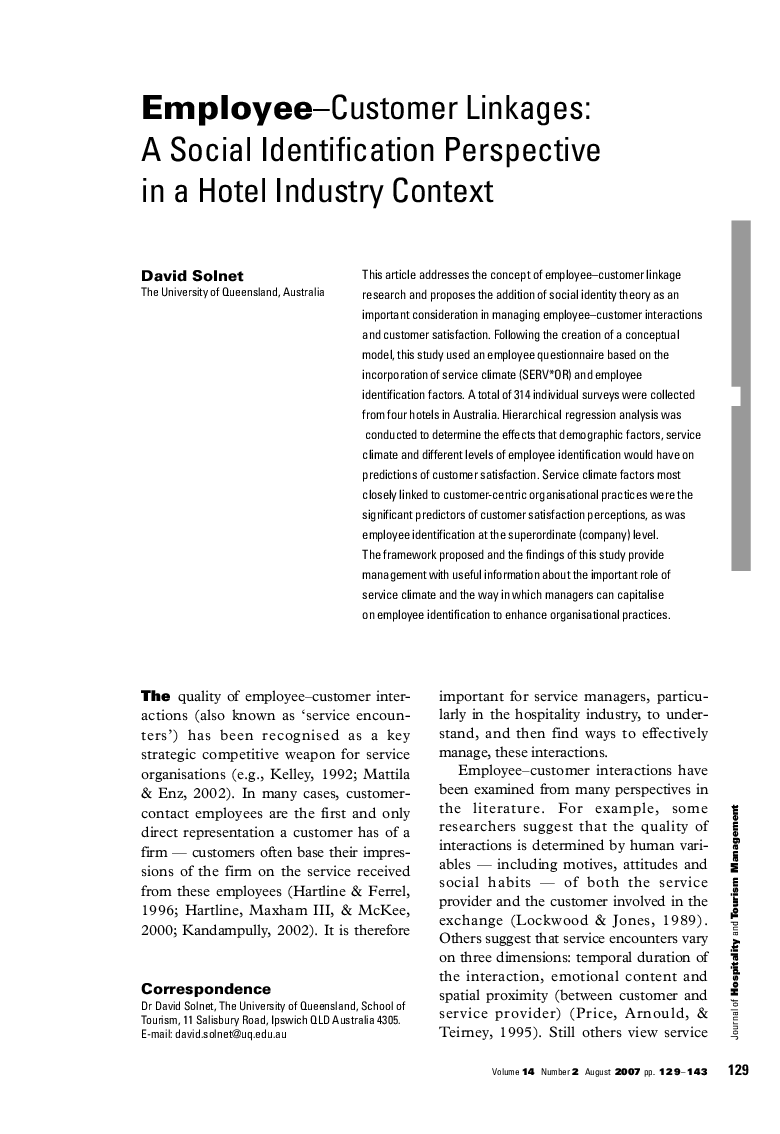| Article ID | Journal | Published Year | Pages | File Type |
|---|---|---|---|---|
| 1011616 | Journal of Hospitality and Tourism Management | 2007 | 15 Pages |
This article addresses the concept of employee—customer linkage research and proposes the addition of social identity theory as an important consideration in managing employee—customer interactions and customer satisfaction. Following the creation of a conceptual model, this study used an employee questionnaire based on the incorporation of service climate (SERV*OR) and employee identification factors. A total of 314 individual surveys were collected from four hotels in Australia. Hierarchical regression analysis was conducted to determine the effects that demographic factors, service climate and different levels of employee identification would have on predictions of customer satisfaction. Service climate factors most closely linked to customer-centric organisational practices were the significant predictors of customer satisfaction perceptions, as was employee identification at the superordinate (company) level. The framework proposed and the findings of this study provide management with useful information about the important role of service climate and the way in which managers can capitalise on employee identification to enhance organisational practices.
